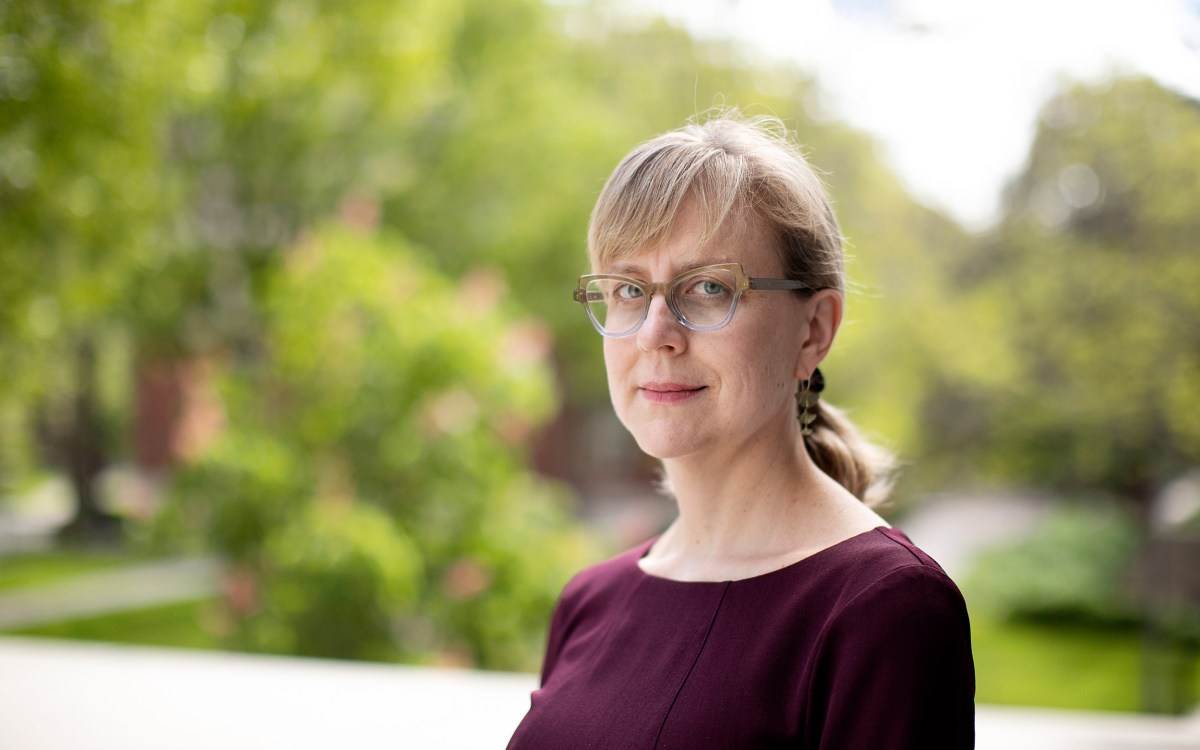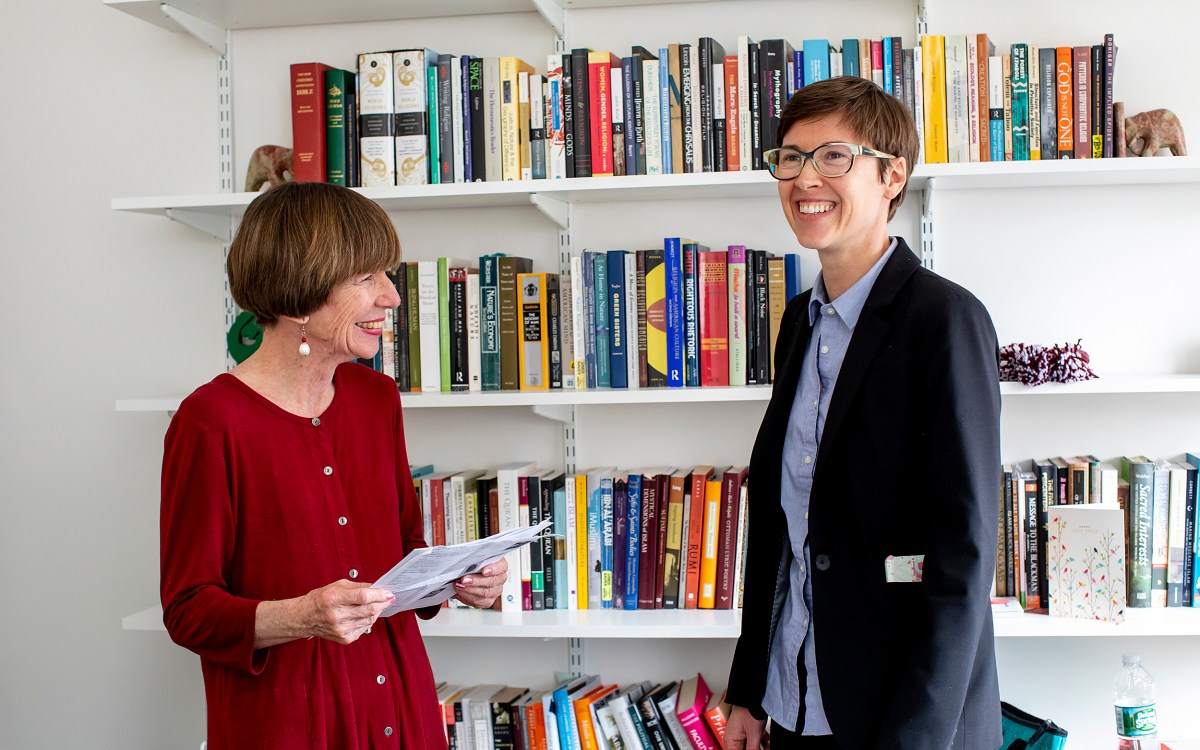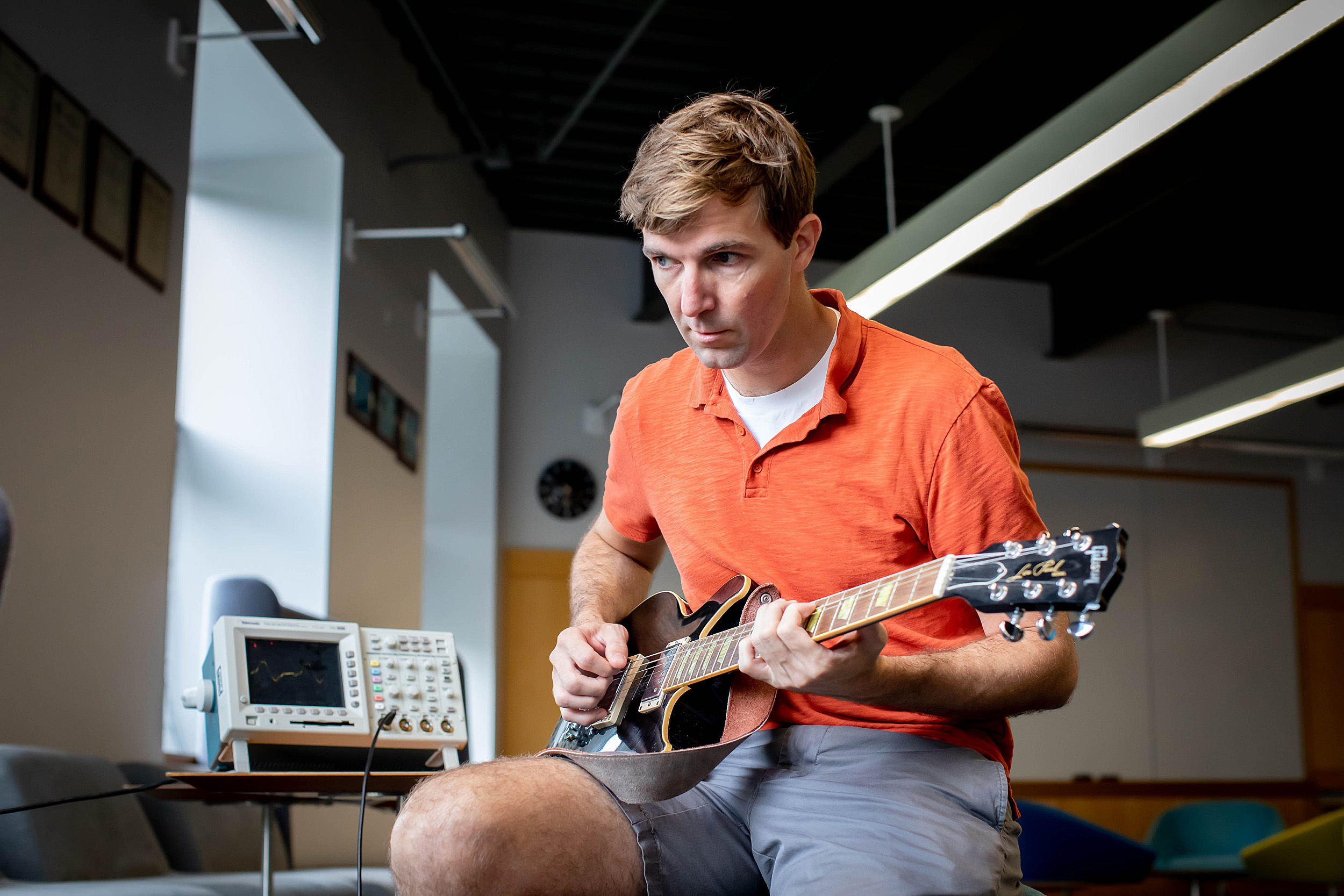
Robert Wood takes his guitar for a spin in preparation for his new course which combines engineering with music.
Rose Lincoln/Harvard Staff Photographer
Recipe for a new Gen Ed course
Start with a creative, interdisciplinary approach to a provocative issue; blend theory and practice; and teach
It’s one thing to understand the physics of sound, but quite another to build a synthesizer or figure out why the instrument resonates better in one auditorium than another. In similar fashion, mastering the history of the black freedom struggle won’t necessarily help explain all that the #MeToo movement owes it.
Starting this fall, 160 courses in the new College program in General Education are offering students the opportunity to engage with these questions and more, in ways that ask them to bridge the worlds of theory and practice across disciplines.
In devising their Gen Ed courses, faculty members were asked to take creative, in-depth approaches to examining persistent, often provocative issues that affect students’ academic and social lives. The courses are distributed across four categories: Aesthetics and Culture; Ethics and Civics; Histories, Societies, Individuals; and Science and Technology in Society.
How Music Works: Engineering the Acoustical World
In Robert Wood’s Gen Ed course, “How Music Works: Engineering the Acoustical World,” the Charles River Professor of Engineering and Applied Sciences in the Harvard John A. Paulson School of Engineering and Applied Sciences (SEAS) wants students to learn the fundamentals of engineering while giving them the opportunity to be curious about acoustic experiences in everyday life. He adapted the course from his prior offering in SEAS (ES25).
In his new course, students build acoustic and electronic instruments as part of the lab component, and compose original pieces to be played on those instruments. The compositions will later be cut onto vinyl records as part of a unit on music storage and preservation. For Wood, bringing together Harvard’s rich scientific and musical traditions is one of the great joys of teaching the class.
“I want to dispel the myth that these concepts are not for people who have little or no experience in engineering and computer science,” he said. “It would be great to have people come out of the course with the confidence to examine phenomena or devices that they wouldn’t have explored earlier.”
Race and Justice
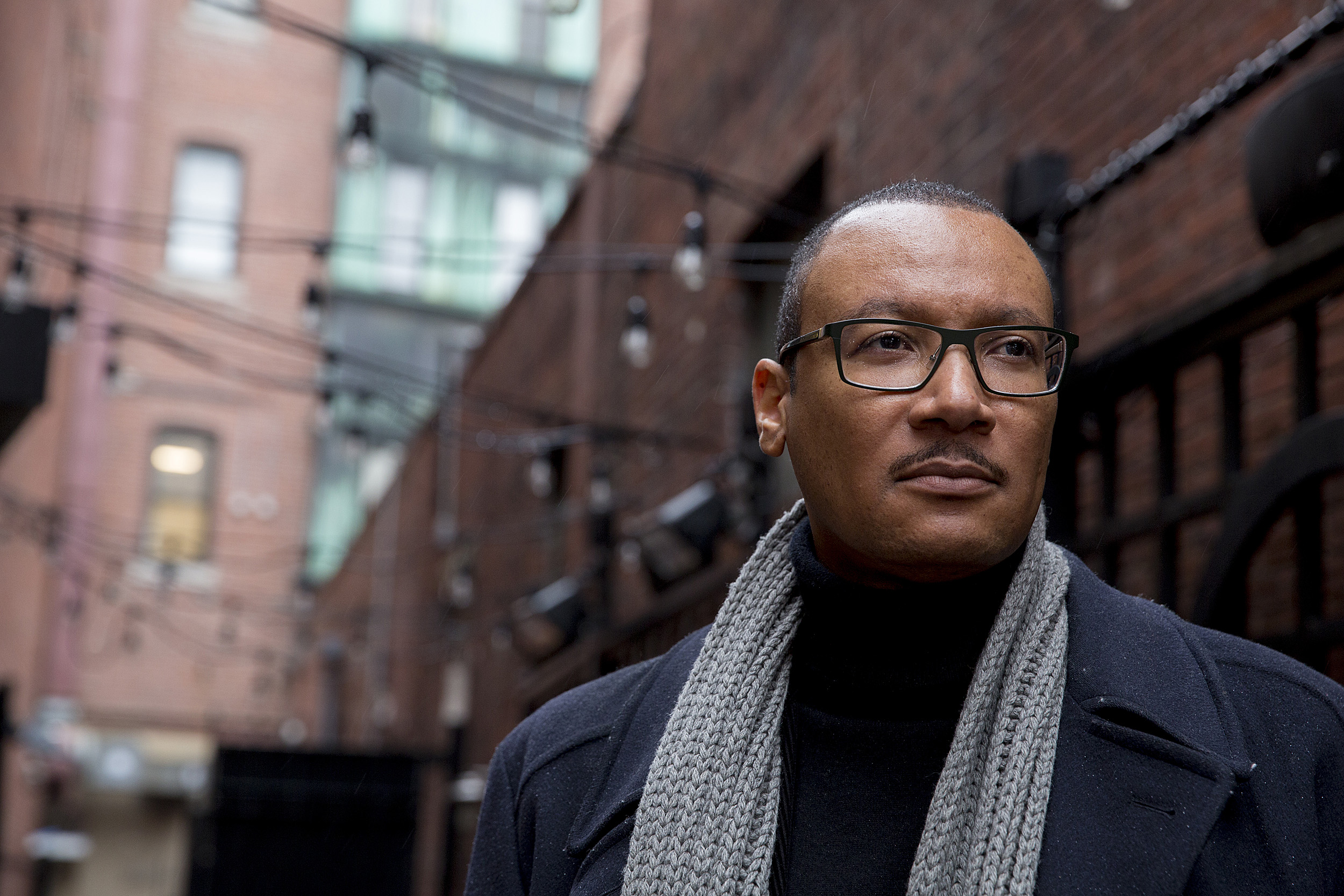
Tommie Shelby’s course, “Race and Justice,” approaches complex sociological issues through philosophy.
Rose Lincoln/Harvard file photo
For Tommie Shelby, Gen Ed provides a space to teach through his discipline and address urgent questions with philosophical applications in daily life. The Caldwell Titcomb Professor of African and African American Studies and of Philosophy designed his course “Race and Justice” as an avenue for those unfamiliar with philosophy to learn more about how it might be applied to public affairs and to encourage thoughtful engagement with issues and questions that are emotionally fraught and difficult to parse.
“The point of ‘Race and Justice’ is to think harder about the issues at hand, because so many people regard both the questions and answers about racism as obvious,” he said. “Part of what I want to do with this course is unsettle that idea, and to show that the questions are much more complex and require much more systematic reflection than students have typically done at this point.”
The class will consider hate speech and regulation, mass incarceration, discrimination, and integration, primarily through the lens of moral reasoning. Through class discussions and essays, students in Shelby’s course will be asked to formulate cogent, rational arguments to support positions on divisive issues.
“This course is intellectual in the classical way of thinking about our sense of justice, but there’s a practical orientation that points beyond the world of Harvard,” said Shelby. “The world has been structured by racial injustice and, in light of this, students will have to think about how to be a responsible citizen of the country and of the world. This course is a small contribution to the process, but still an important one.”
Texts in Transition
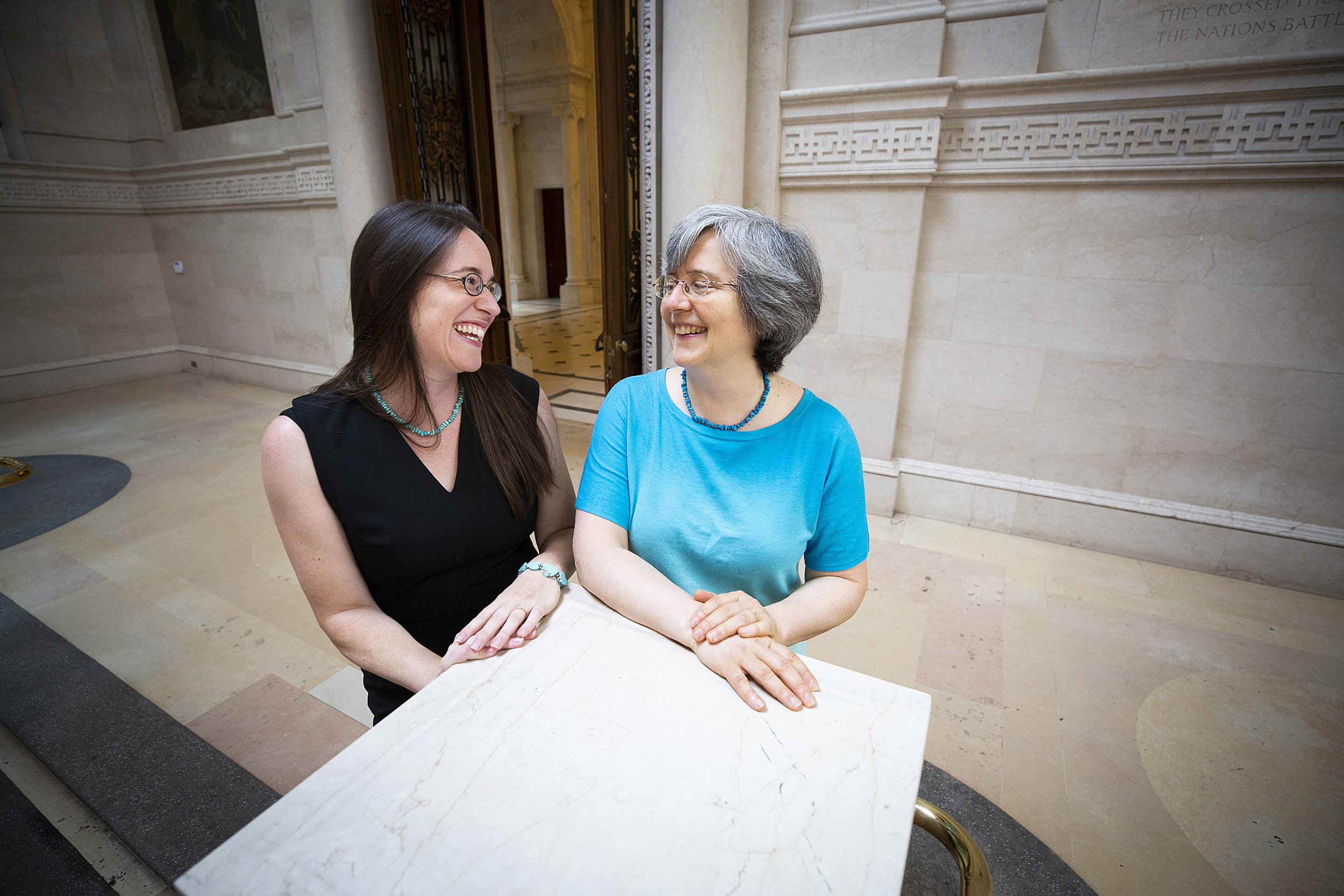
Leah Whittington (left) and Ann Blair are co-teaching a new General Education course, “Texts in Transition.”
Stephanie Mitchell/Harvard Staff Photographer
In Texts in Transition,” Ann Blair and Leah Whittington explore the development of translation, preservation, and use of texts, from cuneiform writing on clay tablets to text messages. They also bring attention to the role of archives, museums, and libraries in saving texts and making them accessible for future scholarship, as well as the processes of conservation that can occur outside of institutions.
Whittington, a professor in the Department of English, points to the accidental preservation of papyrus scrolls as an example of the ways in which writing has been saved and discarded over thousands of years.
“In Greco-Roman antiquity, poetry was highly prized and written on papyrus, but old papyrus scrolls were later used as material for wrapping mummies, which preserved them, along with the body of the dead person,” she said. “In the last 200 years, there’s been new interest in the writing on those papyrus rolls, and as a result we have poetry from 2,000 years ago that is preserved almost by accident.”
For their semester-long project, students become “custodians” of a piece of writing and decide how and why to preserve it for future study. The process is designed to engage students with the conservation process and help them see the ways in which they apply the lessons of the course to texts in their own lives.
“We want to sensitize students to the transformations involved in transmission: Texts are edited, presented and interpreted in new ways, as each generation plays a role in passing them down to the future,” said Blair, the Carl H. Pforzheimer University Professor in the Department of History. “We also each affect the survival of the texts we write today by the decisions we make about what to delete and what to save and how. Those decisions have consequences we can’t always predict, because loss and survival are often also accidental, but at least we can be aware of the factors involved to inform our decisions.”
Black Radicalism
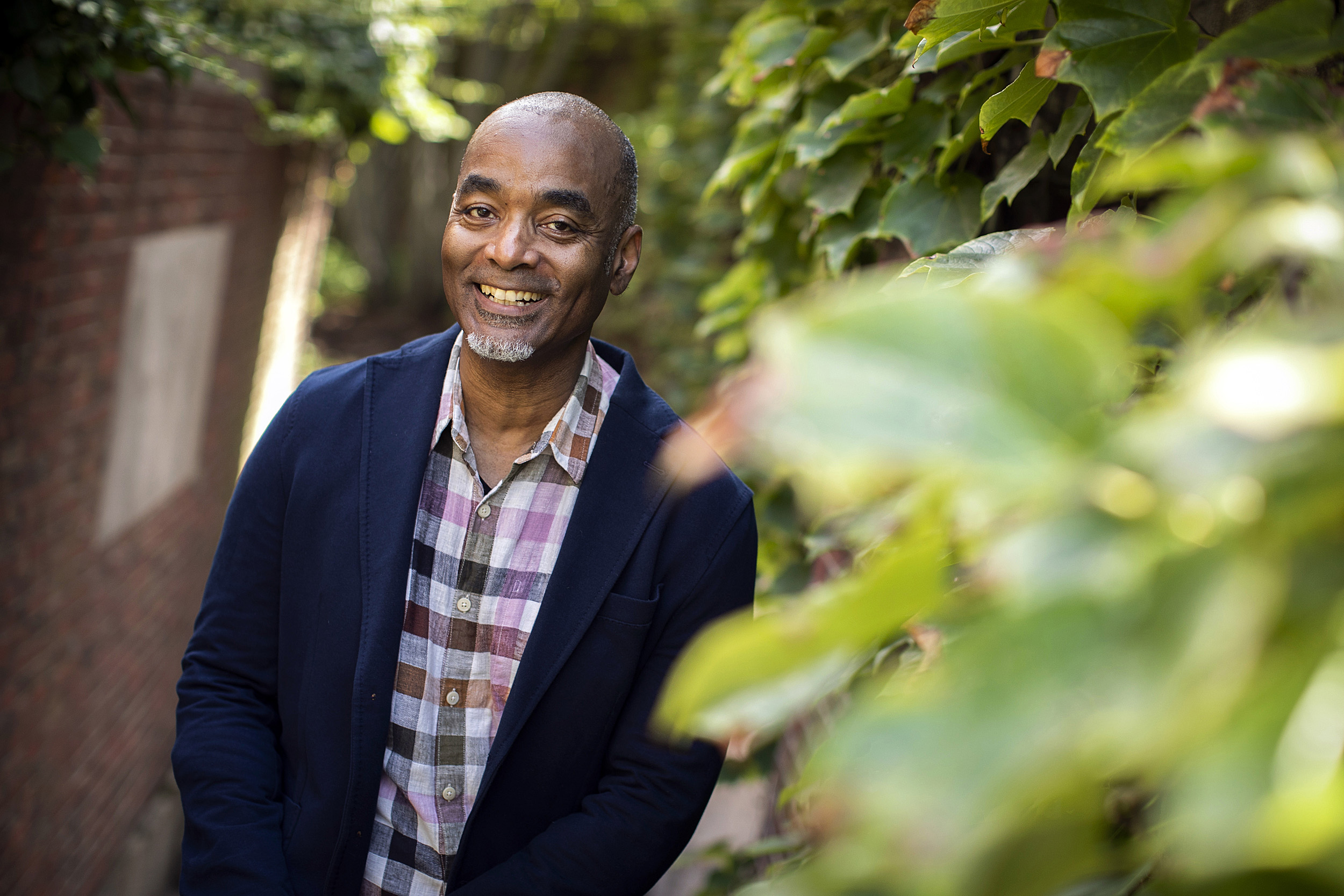
Robert Reid-Pharr and his students use a historical foundation for understanding contemporary protest movements.
Stephanie Mitchell/Harvard file photo
In Robert Reid-Pharr’s course, “Black Radicalism,” students study also issues of race in and outside the classroom, with a focus on works by writers including James Baldwin, Angela Davis, and Frantz Fanon, published from the 1940s through the 1980s.
The texts create a historical foundation for understanding contemporary protest movements like Black Lives Matter and #MeToo, which adopted some of the same methods employed by earlier activists to raise awareness about oppression. The final project will be a virtual museum hosted by the Harvard Library and Archives, with all objects curated by students.
“The point of the museum project is to have the course not just be about what happened in the past, but also where radical movements are going,” said Reid-Pharr, a professor of studies of women, gender, and sexuality and of African and African American studies. “I’m excited that the students will get their hands dirty in the archives, to understand the ways in which the themes we talk about touch the institutions where they are.”
For Reid-Pharr, Gen Ed not only provides an opportunity for students to learn more about his areas of expertise, but is also an opportunity to develop a different perspective on teaching.
“I wanted to jump into Gen Ed in order to learn more about teaching in new ways that are more effective for student populations now,” he said. “I think the course will be a journey for the students, but also a journey for me.”



